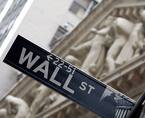Goldman Sachs Involved in Fraudulent Activities in Toxic Mortgage-backed Securities
Former Trader Says $8 Million Bonus Too Low

A former Goldman Sachs trader who helped the bank bet against toxic mortgage-backed securities it was palming off to investors is attempting to sue his former employer because he says his multimillion-dollar pay package did not reflect the billions of dollars the bank earned as a result of his trades.
Deeb Salem, the former head of trading for Goldman’s Structured Products Group, complained that he received an $8.25 million bonus in 2010, though he said informal comments made by company executives led him to believe he would get closer to $13 million that year.
Salem filed a petition with the New York State Supreme Court last week, demanding that he get an additional $7 million from Goldman, after the Financial Industry Regulatory Authority—a Wall Street self-regulator—ruled in favor of Goldman in an earlier arbitration.
Salem claims his pay was docked because, as noted in a written warning he received, he showed “extremely poor judgment” by bragging in print about trades that his trading desk had made under his supervision in his 2007 annual self-evaluation. It should be noted that Salem’s pay was docked not because he carried out illegal trades, but because he left a paper trail.
This document was a source of embarrassment for the company after it was used as a major source in the Senate Permanent Subcommittee on Investigations’ 2011 report into the financial crisis. Salem called Goldman’s $10 billion bet against the subprime mortgage market “HUGE” and “enormous,” in his report.
Citing Salem’s self-evaluation and emails, the Senate report concluded that Goldman Sachs “used net short positions to benefit from the downturn in the mortgage market, and designed, marketed, and sold [mortgage-backed securities] in ways that created conflicts of interest with the firm’s clients and at times led to the bank’s profiting from the same products that caused substantial losses for its clients.”
In order to maximize the company’s profits on its “short position”—or bet against mortgage-backed securities—Goldman undertook a so-called “short squeeze” that was “intended to compel other market participants to sell their short positions at artificially low prices,” which Goldman would then purchase. The tactic was unsuccessful, apparently because other major financial players realized, like Goldman did, that the mortgage-backed securities market was about to implode.
As the Senate report made clear, Goldman’s “short squeeze” was illegal, as “trading with the intent to manipulate market prices, even if unsuccessful, is a violation of the federal securities laws.”
Salem bragged in his self-evaluation that “the market was trading VERY SHORT and was susceptible to a squeeze. We began to encourage this squeeze, with plans of getting very short again, after the short squeeze caused capitulation of those shorts.”
He lamented, however, that even though the strategy was “do-able and brilliant,” the bad news about the mortgage market kept coming in, overwhelming Goldman’s ability to manipulate prices, and Goldman was forced to take a less complex bet against mortgage-backed securities. It was not all that bad for the bank, since Goldman still made billions of dollars betting that millions of families would be driven from their homes as the foreclosure crisis intensified.
Despite the clear and pervasive violations of securities law documented in the report—theoretically enough to land dozens of Goldman Sachs executives and traders in jail—there have been no criminal charges brought against Goldman stemming from its findings.
Salem’s report refutes the 2010 claim made by Goldman CEO Lloyd Blankfein under oath that “we didn’t have a massive short against the housing market, and we certainly did not bet against our clients.”
In a press conference to announce the Senate Report, committee chair Carl Levin said that Blankfein and Goldman “attempted to mislead the Congress and I believe they did mislead their clients in very significant ways.” He added that he would not “make the determination as to whether or not he [Blankfein] committed perjury,” but said he had turned over transcripts of Blankfein’s testimony to the Justice Department. The Justice Department, predictably, did nothing with the report’s findings.
Salem’s petition comes as Blankfein’s image is being quite consciously rehabilitated. Earlier this month, Vice President Joe Biden, Treasury Secretary Jacob Lew and Energy Secretary Ernest Moniz attended a conference on the environment at the company’s headquarters. As the Wall Street Journal noted, Blankfein was “front and center at the conference, and in several television appearances before the event,” including an interview with PBS’s Charlie Rose.
In his testimony before the earlier arbitration hearing, Salem bemoaned his pay cut. “Let’s be very clear: I was one of the most sought-after investment professionals in the mortgage industry,” adding, “I had the opportunity throughout the course of my career… to leave for other opportunities.” He subsequently left for the hedge fund GoldenTree Asset Management, which manages some $15.7 billion in assets.
The entire episode reads as like a satirist’s parody of the ridiculous and absurd corruption of American society: A Wall Street trader sues his old employer for insufficiently compensating him for the billions of dollars it made from his trading activities in a court that, if it actually followed the law, would hold everyone involved legally accountable.
The whole sordid episode reveals the absurd, remorseless greed that dominate the upper echelons of Wall Street, the criminality that pervades all of its activities, and the complicity of the government in aiding and abetting the banks’ crimes.

